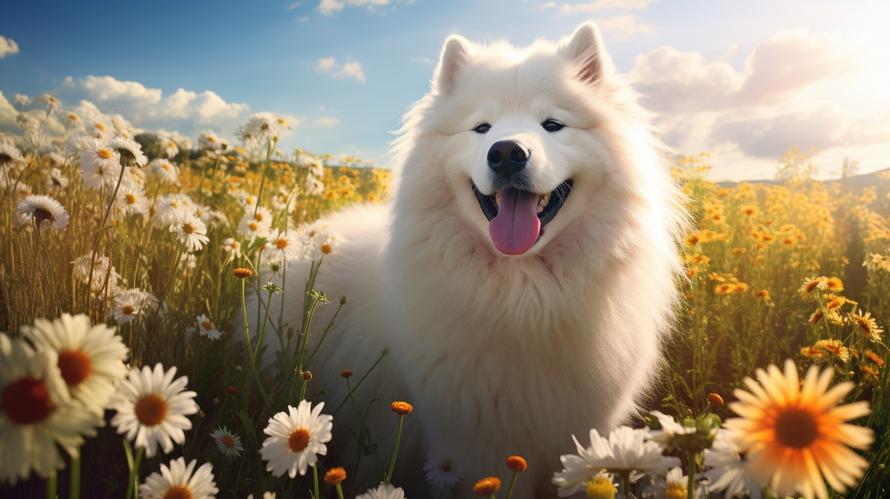Did you know that Samoyeds, those fluffy, friendly, and oh-so-cute mascots of colder climates, were originally bred to help Siberian nomads hunt and herd reindeer? That’s right! These dogs have extraordinary physical stamina and an imposingly intimidating appearance, making them excellent workers in addition to lovable pets. But what intrigues most pet parents, apart from their agile abilities, is their diet. Today, we’re going to explore one question that has been gnawing at Samoyed lovers: Should a Samoyed eat grain-free?
To answer this intriguing question, we need to enter the controversial realm of the pet food industry. In the recent past, grain-free diets have been hailed as the ultimate health solution for dogs. Painted as the villain, grains were blamed for all sorts of health issues ranging from doggy obesity to skin allergies. However, recent research suggest that it might not be as black and white as we thought.
Believe it or not, grains are not the doggy diet demons they’re often made out to be. In fact, they can be an essential source of nutrients for your furry friend. According to the American Veterinary Medical Association (AVMA), grains provide essential nutrients, including fiber, which aids in digestion. They also offer valuable energy sources, thanks to their rich carbohydrate content. The key, as always, lies in portion control and the quality of grains used.
But why did grains get the villain tag? The answer may surprise you. Many commercial dog food brands use low-quality grain fillers like corn, wheat, and soy, which are linked to allergies and other health issues. This, combined with an increasing trend toward humanization of pet diets—in which pet owners project their dietary preferences onto their pets—,has led to a surge in popularity of grain-free dog foods.
So where does that leave our Samoyeds? Well, it’s best to consider their unique dietary needs, which are partly influenced by their fascinating history. As working dogs bred in cold climates, Samoyeds have higher energy needs compared to some breeds. This means that they require a diet rich in high-quality proteins and fats. The top sources of these crucial macronutrients are usually meat and fish, while grains can provide the necessary carbohydrates for energy.
All this doesn’t mean that Samoyeds won’t do well on a grain-free diet, though. High-quality grain-free food can be suitable for some dogs. For instance, if your Samoyed has diagnosed allergies or intolerances to specific grains, a grain-free diet might be a wise choice for them. Subtle signs of grain allergy can include excessive itching, frequent ear infections, non-seasonal shedding or constant paw licking.
Importantly, if you’re considering switching your Samoyed to a grain-free diet, you’ll need to make an informed decision. A study conducted by the U.S. Food and Drug Administration found that certain grain-free diets might be linked to a rare but potentially fatal heart condition known as dilated cardiomyopathy (DCM) in dogs. The key suspect was not, however, the absence of grains per se, but the presence of legumes, peas, and potatoes as replacements.
The bottom line is that dogs, just like us humans, are individual beings. The ideal diet for your Samoyed should be determined by its specific needs, which may be influenced by factors like age, weight, activity level, and overall health status.
So, should your Samoyed eat grain-free? It depends. If your Samoyed doesn’t have a grain allergy, and if you are offering high-quality grain-inclusive food, there’s no significant reason to exclude grains from their diet. However, if the grain-free diet consists of nutritionally balanced ingredients and is recommended by your vet, it could also be a good choice.
Always remember, whatever you decide, regular check-ups and consultations with your trusted veterinarian are crucial to ensure your Samoyed lives a healthy, active, and happy life. After all, a well-fed Samoyed is a happy Samoyed. And nothing in the world beats coming home to that beaming, fluffy face, now is it?



